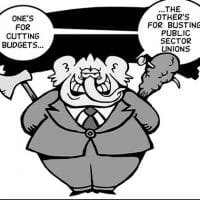-
Militarism and monopoly capitalism
Why are so many modern capitalist societies addicted to militarism? On the one hand, these societies are intensely growth oriented and expansionist. On the other hand, militarism is a convenient way of absorbing economic surplus and thereby countering the stagnationist propensity of monopoly capitalism.
-
Unions fight inequality
The decline in unionization is one of the most important factors promoting the concentration of income at the upper end of the income distribution. The statement may not surprise you, but the fact that this was the conclusion of an IMF study of the causes of inequality might.
-
Does David Roediger disagree with Ellen Meiksins Wood?
How does race relate to class in capitalism? Is it intrinsic and essential to the reproduction of capital, or merely an accidental feature of particular capitals? In this recent essay by Richard Seymour, and originally published on his Patreon, Seymour considers a debate within Marxism on the relationship between class, race and capitalism.
-
Political economy for radical lawyers
The latest issue of the London Review of International Law features an interesting review essay by Robert Howse, in which he makes the case for progressive international lawyers attending to the discipline of economics and the insights that can be gained from it, in particular from what he sees as more progressive economists. Howse’s essay […]
-
The mega rich are getting mega richer
The indirect effect of the increase in income inequality is economically more injurious than the erosion of company earnings or a stock market downturn.
-
The American empire and its media
Largely unbeknownst to the general public, many media executives and top journalists of almost all major U.S. news outlets, political and business magazines, public broadcasters and press agencies have long been members of the Council on Foreign Relations (CFR).
-
Race and ethnicity discrimination in the U.S. labor market
These racial/ethnic differences mean that our general push for more and better jobs must be accompanied by policies designed to overcome the discriminatory and segmented nature of the US labor market.
-
Social Security may bust the Federal budget – but not how you think
Both Democrats and Republicans have used social security funds to hide government debt—i.e., to trick the public. This was made possible by a huge surplus engineered by fund actuaries to account for baby boomers. In the next few years the fund will need to cash in on its bonds and this will cause the federal debt to balloon.
-
Eugene Debs and the Kingdom of Evil
Eugene Victor Debs was not only the builder of the social movement in America but arguably the most important political figure of the 20th century, before being crucified by the capitalist class when he and hundred of thousands of followers became a potent political threat. The most notable moments of Debs life were the railroad strikes in 1894, his campaign for Congress in 1916 until he was arrested under the Sedition Act by President Wilson and finally his speech moments before his sentencing in 1918.
-
Trump’s tax cuts would give the poor $40 each and the ultrarich $940,000
When challenged on the numbers for its tax proposals, the Trump administration has insisted that they’ll lead to large-scale economic growth, which can largely offset the cost. The TPC finds that this isn’t the case.
-
Neoliberalism in crisis
Persistent economic stagnation together with neoliberal austerity has at this point seriously undermined the stability of the liberal-democratic state and thus the political command sector of the capitalist system. This has led to a dangerous resurgence of political movements in the fascist genus (fascism, neofascism, post-fascism), representing an alternative way of managing the state of the capitalist system, opposed to liberal democracy.
-
Are you ready to consider that capitalism is the real problem?
WIth 8 men holding the same wealth as 50% of the world, you have to wonder if there is something systamatically wrong with the way the world is. Capitalism is no longer ideal in the world we live in today. People are starting to realize this in the forms of inequality of wealth, food, resources. Now is the time to change that, and it can be done.
-
The sorry state of the US economy
Although reluctant to say it, a recent IMF report on the state of U.S. economy makes clear that U.S. policy makers have failed to protect majority living conditions. While the IMF generally pulls no punches in criticizing the policies of most member governments if it determines that they threaten to slow capitalist globalization dynamics, it tends to tap dance around disagreements when it comes to the policies of its more powerful member countries, especially the United States. If we want improved living conditions we are going to have to fight for them. Perhaps greater awareness of just how bad things are in the United States will help speed the effort.
-
Empire Files: Abby Martin meets the Venezuelan opposition
Abby Martin goes on the deadly front lines of the anti government protests in Venezuela and follows the evolution of a typical guarimba—or opposition barricade. She explains what the targets from the opposition reveal about the nature of the movement and breaks down the reality of the death toll that has rocked the nation since the unrest began, and how a lynch mob campaign came after her and the Empire Files team for reporting these facts.
-
Fire and riddles at Hamburg
I wonder whether those so horrified today were sickened then at US attacks on others’ sovereignty. There has been lots of masquerading, I think, by disguised provocateurs or indignant sovereignty defenders. Their threats against even hesitant moves toward dialogue, disarmament, de-escalation in the world’s charged atmosphere are what truly sicken me—and frighten me!
-
The earth shall rise on new foundations
The United States is sometimes viewed as the most extreme capitalist society on earth. The decision of the newly elected Trump administration to withdraw from the Paris Climate Agreement would seem to affirm such a judgment. It highlights the fact that while capitalism cannot solve the environmental problem, a more extreme capitalist society can, if it is not stopped, eliminate all possibility for a future sustainable society, by accelerating the runaway train to catastrophe represented by today’s business as usual.
-
Venezuela: ‘our revolutionary democratic experience is at stake’
Revolutionary activist and sociologist Reinaldo Iturriza has spent many years working with popular movements in Venezuela and writing on the rise of Chavismo as a political movement of the poor. He also served as Minister for the Communes and Social Movements, and then Minister for Culture in President Nicolas Maduro’s cabinet between 2013 and 2016.
-
Ransacking the public sector
Almost 50% of union members in the United States today work in the public sector. By necessity, they will have to play a major role in the rebuilding of organized labor. But like private sector unions before them, government employee unions face circumstances threatening their very existence.
-
The shifting politics of inequality and the class ceiling
Britain’s class landscape has changed: it is more polarised at the extremes and messier in the middle. The distinction between middle and working class is less clear-cut. The elite is able to set political agendas and entrench their own privilege. The left needs a clear narrative showing how privilege leads to gross unfairness—and effective policies […]
-
Big shots in Hamburg
Years ago the 35th US president made a speech in Germany, four words of which, in American-accented German, remain famous: “Ich bin ein Berliner!”—“I am a Berliner!” That was John F. Kennedy. Will the 45th president, soon to visit Germany’s second city, emulate him and tweet “I am a Hamburger! Wow!”

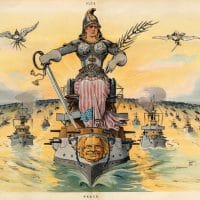
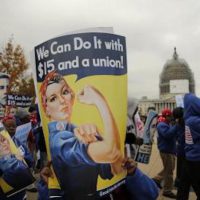
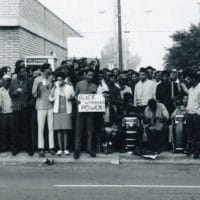

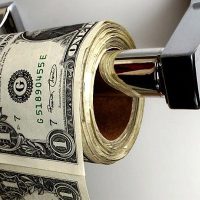


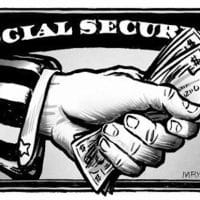
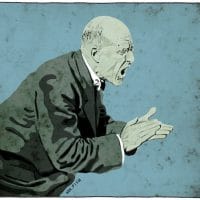
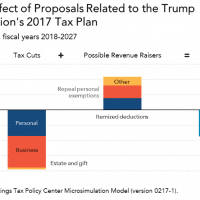

![Fifty-one percent of Americans between the ages of 18 and 29 no longer support the system of capitalism. [Illustration: Kseniya_Milner/iStock]](https://mronline.org/wp-content/uploads/2017/07/capitalism-isnt-working-200x200.jpg)





